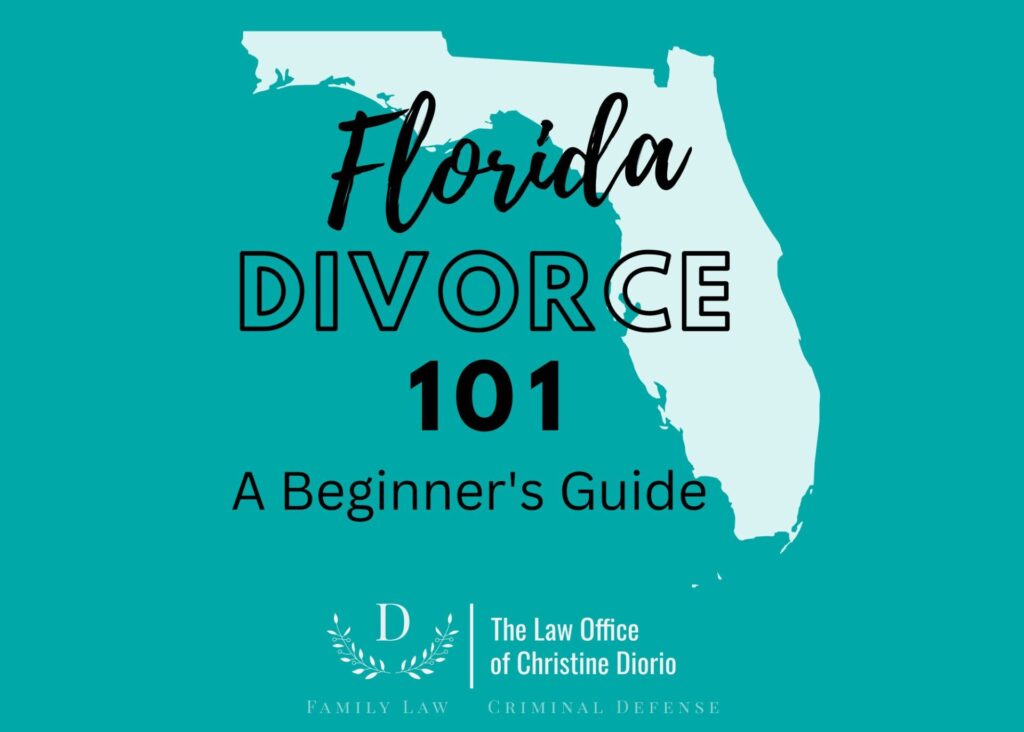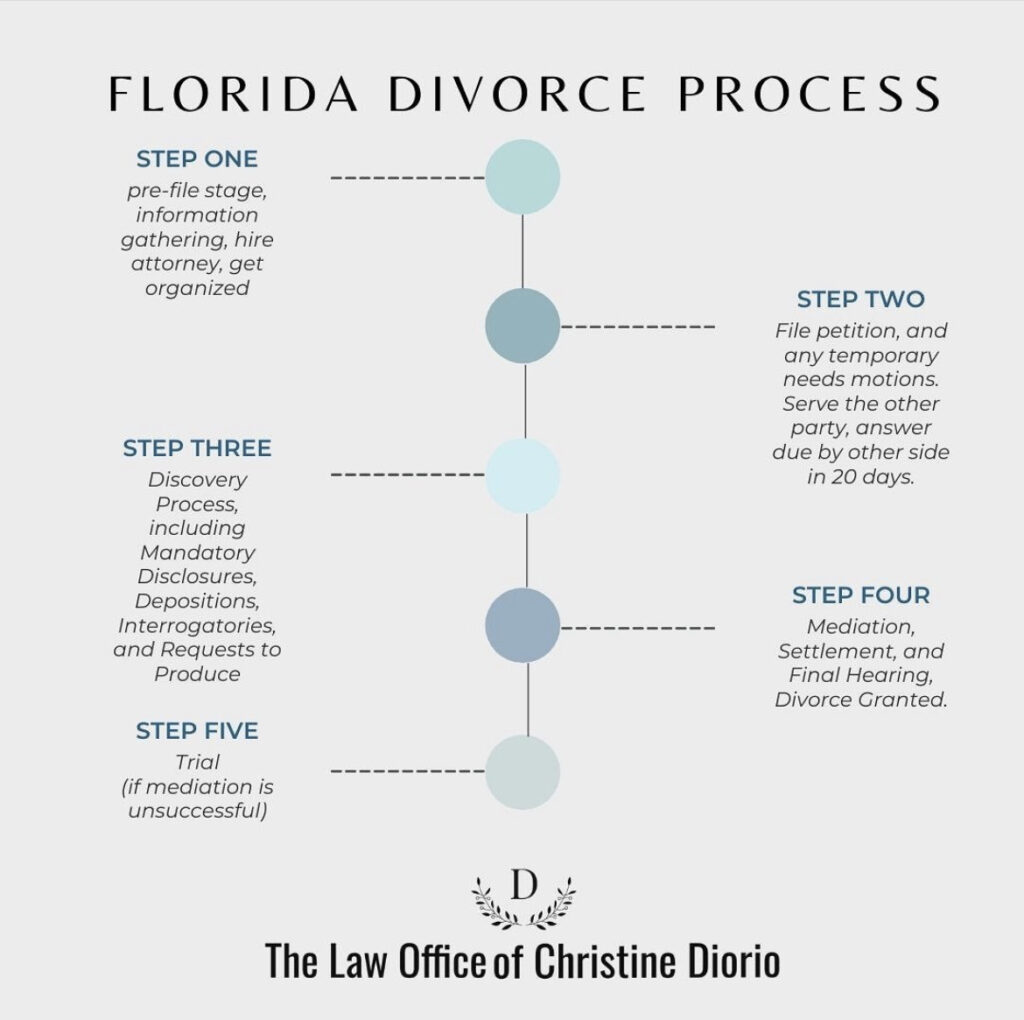Florida Divorce 101: A Beginner’s Guide

#1: Grounds for Divorce in Florida
Florida is a no-fault divorce state. That means that no one is required to prove wrong-doing by their spouse. All that is required is for one of you state under oath that the marriage is “irretrievably broken”. Stated another way, this means one party believes there is nothing the court could do, such as order you to attend counseling, to fix the marriage. This move toward no-fault divorce has eliminated the need for “mud-slinging” just to obtain a divorce, and has made room for the possibility of amicable divorces.
#2: Know your Options: What Type of Divorce is Right for You?
There is no one-size-fits-all divorce. The typical options to obtain a divorce in Florida include:
- DIY or Kitchen Table Agreement
- Attorney Assisted Settlement
- Mediated Settlement (With or Without Attorneys)
- Collaborative Divorce
- Litigation/Trial
The first step in determining which method is right for you is knowing whether your divorce will be contested or uncontested. It is not enough that both of you want out of the marriage for the divorce to be considered uncontested, you must both also agree on the terms of your divorce. But in the same vein, just because you don’t agree on the terms of your divorce, that doesn’t mean your divorce must go to trial or get nasty. Collaborative Divorce is an excellent solution for parties who want to keep things as amicable as possible, but still have complicated issues to resolve. However, sometimes collaborative divorce can be expensive, therefore attorney assisted settlement or mediation might be the best option for you. This is when choosing the right attorney becomes very important.
#3: Glossary of Divorce Terms
The common terms in divorce law you will need to become familiar with are:
- Petitioner: the party who is asking for the divorce, they file the petition
- Respondent: the other party to the marriage who will answer the initial petition for divorce
- Timesharing & Parental Responsibility: these two terms have replaced the term “custody” in Florida family law. Today we talk about the equal, majority or minority timesharing parent and shared, ultimate, or sole decision-making when speaking of who will spend time with and be responsible for the minor children.
- Marital Settlement Agreement: Also known as an “MSA” this is the final agreement that the parties will sign after they have settled all issues between them either via settlement or mediation. This contract is then approved by the Judge and adopted as a court order or “Final Judgment” which becomes what is more commonly known as your “Divorce Decree”.
- Parenting Plan: This is a separate contract between the parties governing all issues regarding the minor children. It is attached to the MSA or Marital Settlement Agreement as an Exhibit and also adopted into the court’s final judgment.
- Impasse: If you are unable to reach an agreement after mediation, you have reached an impasse and your case will be set for a final hearing, also known as, a divorce trial.
#4: Process & Procedure

The length of time it takes to complete this process depends upon two things: 1) how organized you and your soon-to-be-ex are, and 2) the level of conflict between you. Uncontested divorces can take as little as 3 weeks, whereas high conflict cases can last years. Most cases with moderate conflict settle at mediation within 6 months to 1 year on average. In fact, in Florida 95% of all divorce cases end in settlement.
#5: Should you Hire an Attorney?
As an attorney, you might be expecting me to answer this with a resounding YES. But, as someone who has helped countless people through the divorce process, I can tell you that not everyone needs an attorney, however, most people do. The real question isn’t so much, do I need an attorney? But, what type of attorney do I need, and how involved should they be? Even if you and your spouse have nothing in dispute, it is still a good idea to have an attorney review your agreement. This is especially true if you have significant assets and/or children. The type of attorney you choose to review your case is the most important concern.
Litigation is extremely expensive. Beware of the attorney who tries to convince you that litigation is the answer or promises you a certain outcome. However, an attorney who listens to your story and offers you options to consider, such as mediation, settlement, or collaborative divorce is an attorney who has your best interests at heart rather than their bottom line. Some cases must go to trial, but that is certainly the minority.
Hopefully this has helped you get oriented as you take your first steps towards divorce. If you are in need of a Tampa Divorce Attorney reach out to our office for a free 30 minute consultation to find out which option is right for you. At The Law Office of Christine Diorio, P.A. we treat you like family! Come learn why our office is where people say justice has a heart. Call today 813.322.2082
